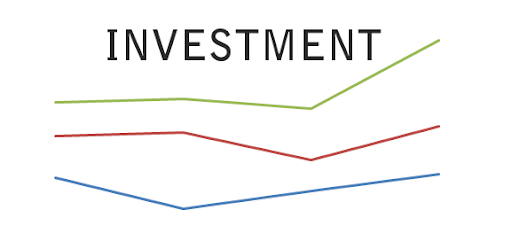
Investment is not just a term thrown around in financial circles; it is an integral part of our daily lives, whether we realize it or not. From the choices we make with our time and energy to the decisions we make with our money, investment plays a crucial role in shaping our future. But what does investment really mean? Is it simply about putting money into stocks and bonds, or is there more to it? In this article, we will dive deep into the concept of investment, exploring its various forms and uncovering its true essence as a vehicle for growth and opportunity. So buckle up and get ready to explore the intricate world of investment like never before.
What Investment Means In Simple Terms
At its core, investment refers to the act of putting money or resources into something with the expectation of gaining a profitable return in the future. It is essentially the opposite of spending or consuming, as it entails setting aside funds for growth and potential gains over time. While most people associate investment with stocks, bonds, and real estate, it can also encompass various other assets, such as starting a business, investing in education or skills development, or even simply saving money in a high-interest savings account.
Investment is not limited to financial gain; it can also manifest as an investment of time and effort. For instance, pursuing higher education could be seen as an investment in oneself for personal and professional growth. Similarly, building strong relationships with others can be considered an investment that pays off through emotional support and networking opportunities. Ultimately, viewing investments beyond traditional monetary means opens up exciting possibilities for individuals to grow intellectually and emotionally while working towards their goals.
Various Investment Options Available To Individuals
When it comes to investing your hard-earned money, there is a wide range of options available to individuals. Understanding the different types of investments can help you make informed decisions and maximize your potential returns.
- One option is stocks, which represent shares in a company’s ownership. Investing in stocks allows you to become a partial owner of the company and potentially benefit from its future growth and profitability.
- Another popular investment option is bonds, which are essentially loans made by investors to corporations or governments. By purchasing bonds, individuals become creditors and receive fixed interest payments over time. Bonds are often considered less risky than stocks as they provide a more stable income stream.
- Real estate also offers promising investment opportunities. Investing in physical properties such as houses or commercial buildings can generate various sources of income, including rental income and capital appreciation over time. Real estate investments have the potential for both long-term growth and regular cash flow.
- Additionally, mutual funds serve as another means for individuals to invest in a diversified portfolio managed by professional fund managers on behalf of multiple investors. These funds pool money from various contributors to invest in a range of assets such as stocks, bonds, or real estate investment trusts (REITs). Mutual funds offer diversification benefits while delegating the day-to-day decision-making process to experienced professionals.
Overall, exploring different types of investments will allow you to tailor your portfolio based on your risk tolerance and financial goals. Diversifying across several asset classes can help mitigate risks while maximizing returns over the long term.
Advantages And Potential Drawbacks Of Investing
Investing can bring a wide range of benefits to individuals looking to secure their financial future. One of the most notable advantages is the potential for significant long-term gains. By investing in various asset classes such as stocks, real estate or bonds, individuals have the opportunity to earn returns that surpass traditional savings accounts. Additionally, investments can act as a hedge against inflation, helping to maintain purchasing power over time.
However, it’s important to acknowledge that investing also comes with potential drawbacks and risks. For instance, one of the biggest challenges faced by investors is market volatility. Prices of assets can fluctuate rapidly due to factors like economic conditions and geopolitical events. This unpredictability can lead to losses if not managed effectively. Furthermore, there is always a level of uncertainty involved in investing as even well-researched decisions may not yield desirable outcomes.
Despite these risks, it is crucial for individuals to recognize and explore the benefits that come with investing while managing potential drawbacks through careful planning and diversification strategies. The possibility for exponential growth and wealth accumulation makes investing an attractive option for those willing to navigate the uncertainties of financial markets wisely.
Factors To Consider:
Investing can be a lucrative endeavor if done wisely. However, before diving into any investment opportunity, it is crucial to carefully consider various factors that can significantly impact the outcome of your decision.
- One key factor to explore is the economic climate and market conditions. Assessing the current state of the economy and understanding how it may affect your prospective investment is essential for making informed choices.
- Another important consideration is risk management. All investments inherently involve some level of risk, and it’s vital to evaluate potential risks before committing capital. Consider factors such as financial stability, industry trends, and competition in order to accurately assess the level of risk associated with a particular investment. Additionally, diversification across different asset classes can help mitigate risk by spreading investments across different sectors.
- Furthermore, understanding your own financial goals and time horizon is crucial when making an investment decision. Ask yourself why you are investing: Is it for long-term growth or short-term gains? Are you investing for retirement or saving for a specific future expense? These questions will help guide you toward investments that align with your personal objectives.
Ultimately, identifying key factors to consider before making an investment decision ensures that you are informed and prepared for potential outcomes. Taking a proactive approach by considering economic conditions, managing risks effectively, and aligning investments with personal goals increases the likelihood of achieving desired results from investments.
Investment Strategies:
- One popular investment strategy is value investing, which involves identifying undervalued companies and investing in them with the expectation that their stock prices will eventually rise. This approach focuses on finding stocks that are trading at a discount to their intrinsic value and holding onto them for the long term. Value investors typically analyze financial statements, evaluate management teams, and consider macroeconomic factors when making investment decisions.
- Another approach to investing is growth investing, where investors seek out companies with strong earnings growth potential. The goal of growth investing is to identify businesses that are expected to outperform the overall market in terms of revenue or profit growth. Growth investors often prioritize innovation and disruption when analyzing companies, looking for those that have competitive advantages in rapidly growing industries.
- One more investment strategy worth mentioning is income investing, which aims to generate regular cash flow through dividend payments or interest income from bonds or rental properties. Income investors focus on stable investments with attractive yields as they prioritize generating passive income over capital appreciation. This strategy can be particularly appealing for retirees or those seeking regular income streams while preserving their initial principal.
In conclusion, there are various investment strategies available for different goals and risk preferences. Whether you prefer the value-driven approach of finding undervalued stocks, the high-growth potential of certain industries, or a steady income stream from dependable assets, understanding these approaches can help you make informed decisions about where to allocate your capital. Ultimately, successful investing requires careful research and a well-defined strategy tailored to your specific objectives.
Conclusion:
In conclusion, it is undeniable that investment plays a crucial role in driving economic growth and development. Whether it is investing in stocks, real estate, or starting a business, making sound investment decisions can lead to increased wealth and financial security. Moreover, investment provides opportunities for innovation by funding research and development activities that spur technological advancements.
Furthermore, investment not only benefits individuals but also has a significant impact on society as a whole. For instance, foreign direct investment can bring in new capital and create job opportunities in developing countries, contributing to poverty reduction and improving living standards. Additionally, investments in renewable energy sources can help mitigate climate change effects by reducing reliance on fossil fuels.
Ultimately, the importance of investment lies in its potential to generate long-term returns and drive sustainable growth. By carefully assessing risks and seeking out profitable opportunities, investors can actively contribute to their own financial well-being while also making positive contributions to the broader economy and society at large. Therefore, understanding the significance of investment is essential for anyone striving towards financial stability and progress.
Also Read: Unveiling The Hidden Secrets Of On-Page Optimization For SEO Success





